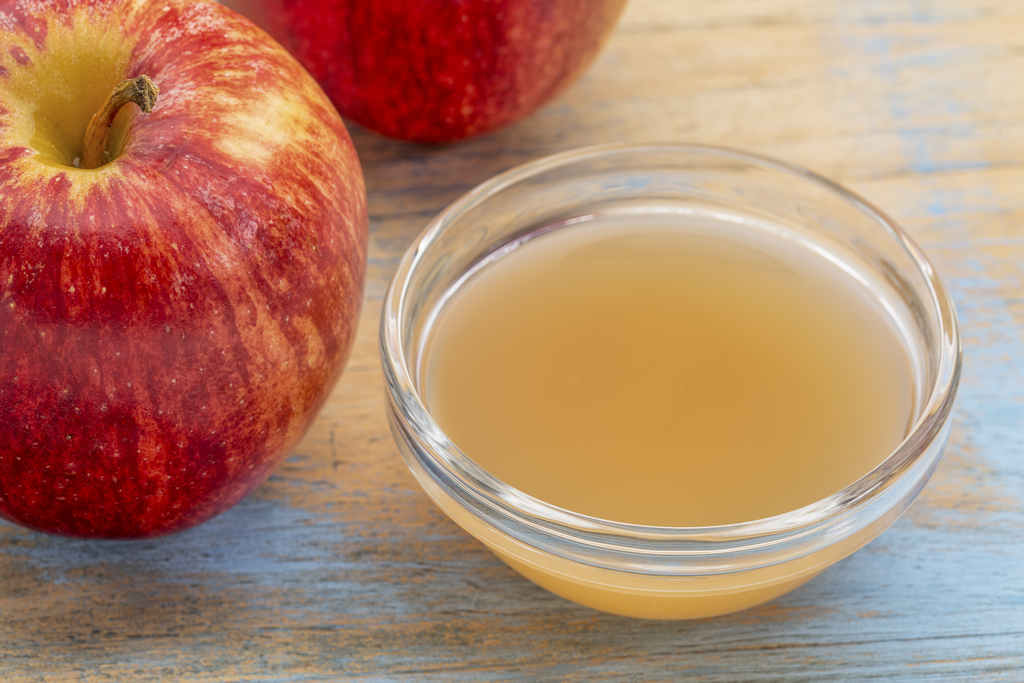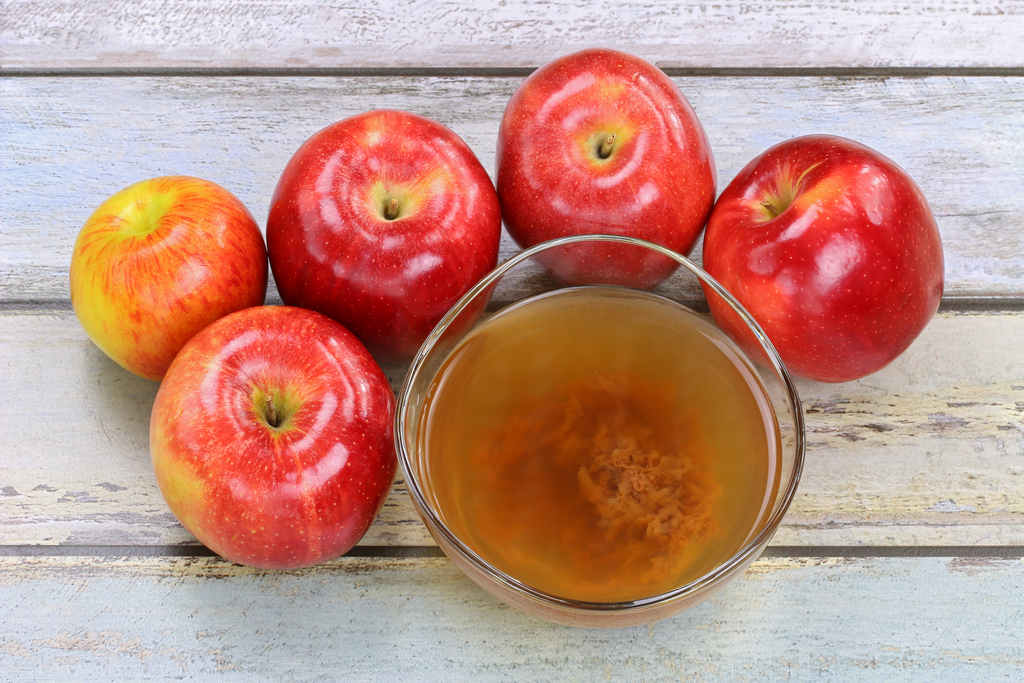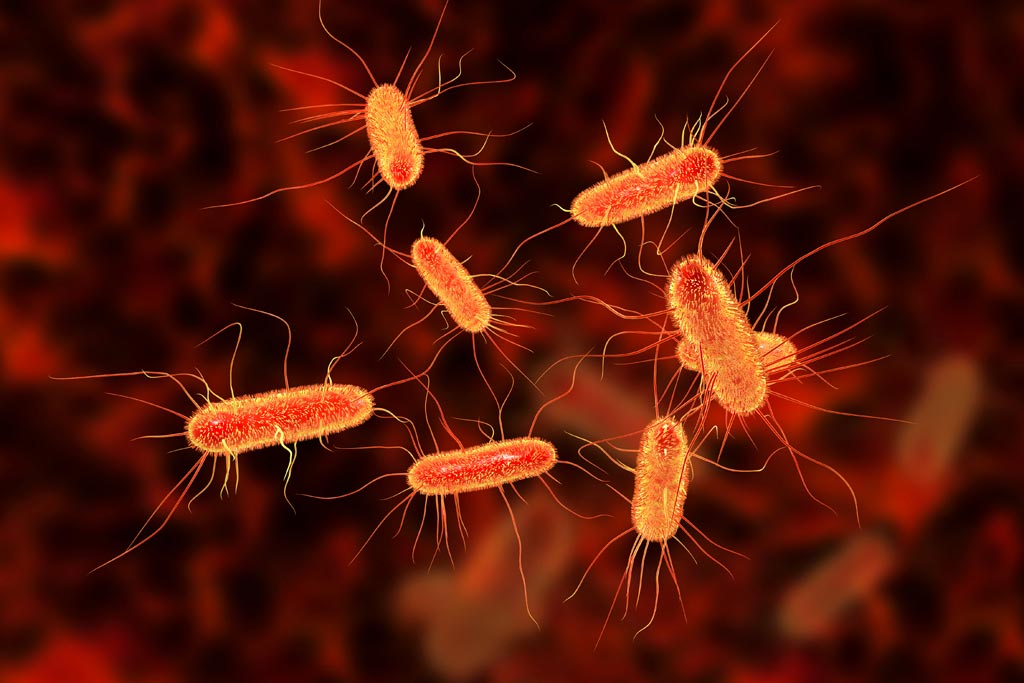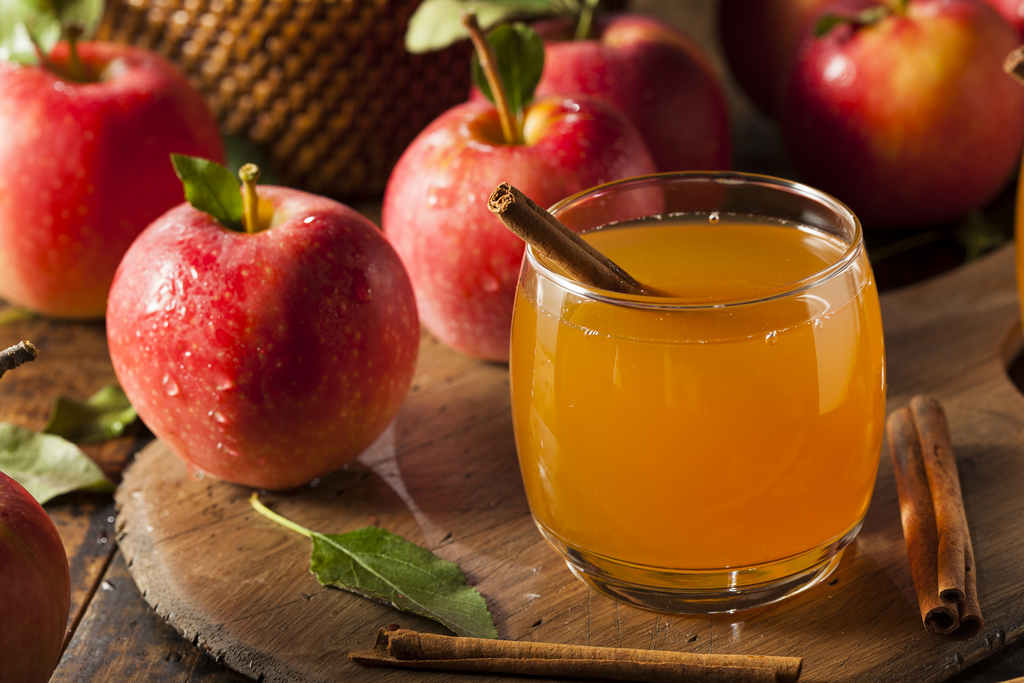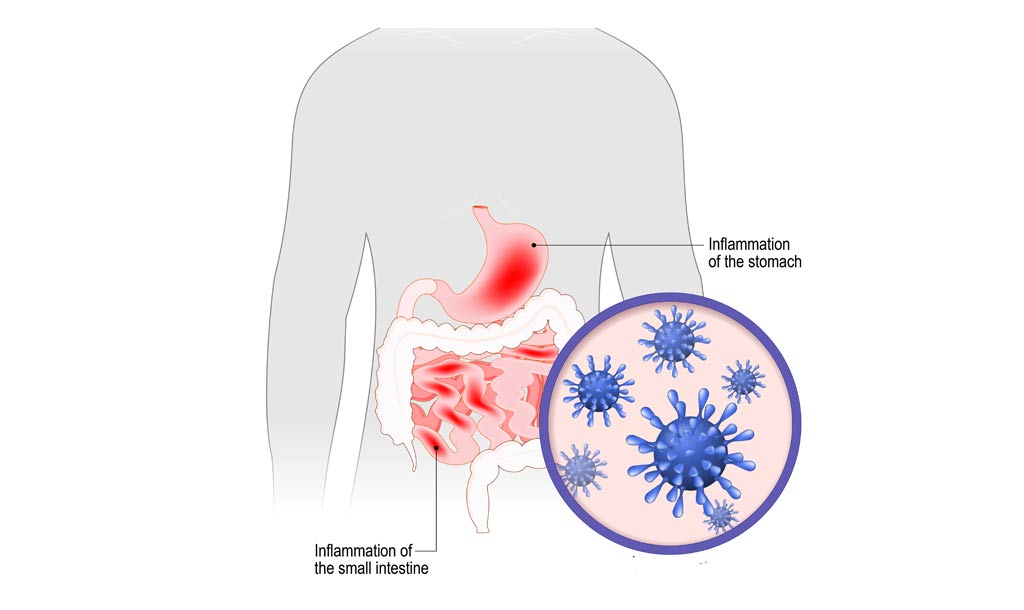When the fall season arrives, people look forward to enjoying fresh apple cider and juices.
Unpasteurized or raw apple cider and other juices can contain harmful bacteria that can make people sick. Without pasteurization, or some other heat treatment to kill bacteria, pathogens can remain in the juice or cider.
FDA, state and local regulations generally say that apple cider can only be sold as unpasteurized if the same farm that grew the apples – is pressing the cider and selling it directly to consumers.
Larger producers that get apples from multiple farms must heat pasteurize the cider produced or use other accepted methods to reduce microbial contaminants.
Unpasteurized juice should have the following warning:
“WARNING: This product has not been pasteurized and, therefore, may contain harmful bacteria that can cause serious illness in children, the elderly, and persons with weakened immune systems.”
- Learn about foodborne pathogens, cross contamination, cold and hot food safety, and best practices to prevent foodborne illness.
- Food Manager ANSI Certification: $99.00 - Valid in all States
- Food Handler Training: Only $7.00!
- 10% OFF: Enter Promo Code "train10off" at Checkout
Possibility for Contaminated Apples
There is a risk of apples becoming contaminated by foodborne pathogens, like Escherichia coli O157:H7 (E. coli). There are several possible ways that the apples used to produce the juice or cider can become contaminated.
The first is by using windfall apples, sometimes called “drops” or “grounders” , which get contaminated by harmful bacteria on the ground. Windfall apples can be contaminated by manure of either cattle or deer, both carriers of E. coli O157:H7.
In addition, people harvesting apples can transfer manure or other contaminates to the apples still on the tree if their hands touch the rungs of the ladder where dirty shoes or boots have been.
Also, pathogen-contaminated water sources, such as wells and lakes, are sometimes inadvertently used to wash apples. Washing apples with safe, potable water is not guaranteed to remove all pathogens.
Juice Pasteurization
Without pasteurization, or some other treatment to kill bacteria, pathogens can end up in the juice or cider. Pasteurization is a heat treatment designed to kill harmful bacteria and to prolong the shelf life of the product.
Grocery shelf apple juice and cider have been pasteurized and commercially frozen juice concentrate has also been heat treated. Apple juice and cider that is sold refrigerated in the produce department or in the dairy case may or may not be pasteurized. Be sure to check the product label, ask your grocer, or check with the producer to be sure.
Foodborne Illness Symptoms
Common symptoms of foodborne illness are diarrhea and/or vomiting, typically lasting 1 to 7 days. Other symptoms might include abdominal cramps, nausea, fever, joint/back aches, and fatigue.
What some people call the “stomach flu” may actually be a foodborne illness caused by a pathogen in the cider or juice (i.e., virus or bacteria).
At Risk Groups
Most people’s immune systems can typically fight off the effects of foodborne illness, but the FDA warns that certain groups risk serious illness, or even death, from drinking untreated juices:
- Pregnant women;
- Infants and young children;
- Older adults;
- People taking certain kinds of medications or with immune systems weakened from medical conditions, such as diabetes, liver disease, kidney disease, organ transplants, HIV/AIDS, or from receiving chemotherapy or radiation treatment.
People in a vulnerable group are advised NOT to drink pasteurized juice and cider, but rather bring unpasteurized products to a boil before consuming it.
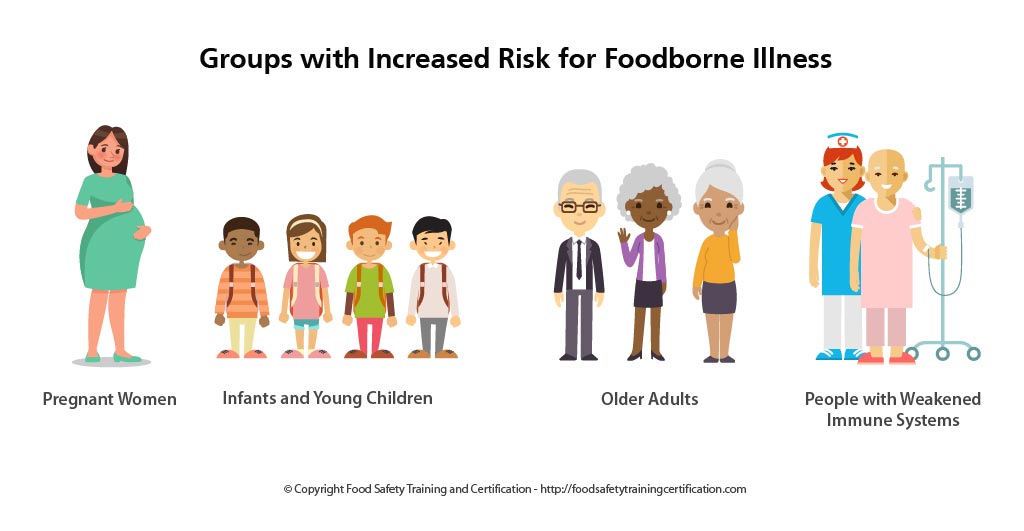
Homemade Cider Food Safety Tips
When making homemade cider, a few simple guidelines can dramatically reduce the risks of harmful bacteria.
- Inspection. Always inspect the apples and avoid using any with visible signs of decay.
- Be Clean. Before making cider, start with clean hands, apples and equipment:
- Wash hands with warm, soapy water for at least twenty seconds.
- Wash apples thoroughly under cool running tap water, scrubbing with a veggie brush if you have one and drying with a clean paper towel.
- Sanitize all cider-making equipment (an easy sanitizing solution is one tablespoon of bleach mixed with one gallon of water) by dipping it in the solution and air drying.
- Heat liquid. Once the apples are in the process of becoming cider, pasteurize the liquid by heating it to at least 160° F for 60 seconds.
- Let cool. Let the cider cool and always store it in the refrigerator.
- Store up to 5 days. Cider should be used immediately and will stay good in the refrigerator for up to 5 days (and can be frozen for longer storage).
Summary
Unpasteurized apple cider and other juices can contain harmful bacteria that can make people sick. Without pasteurization, or some other treatment to kill bacteria, pathogens can end up in the juice or cider.
Additional Resources
- Consumer’s Guide – Making Apple Cider
- Food Safety Notes – Don’t drink it raw – how to pasteurize juice and cider safely
- FDA – Talking about Juice Safety: What You need to Know
- University of Wisconsin-Extension – Safe and Healthy: Preserving Food at Home
- Foodsafety.gov – Juice and Cider: Make Sure They’re Safe
- Food Safety News – Unpasteurized Apple Cider Linked to E. Coli Illnesses Recalled in Canada

